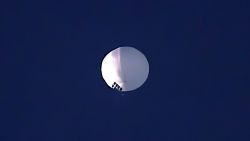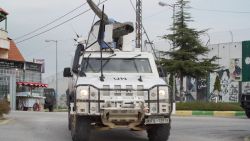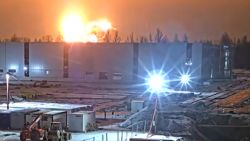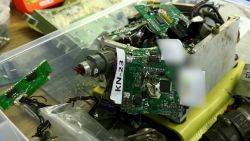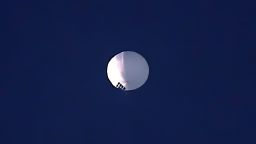Secretary of State Antony Blinken had no choice.
Diplomatically and for domestic political reasons, it would have been impossible to go ahead with a planned visit to China in the coming days as what US officials have described as a Chinese surveillance balloon floated across the US.
The drama dashed an attempt by the Biden administration to take some of the heat out of tense US-China relations. And it is yet another incident that will fuel a sense in Washington and Beijing that the world’s strongest superpower and its rising rival are heading toward an inevitable confrontation.
China took the rare step of expressing regret for the “unintended entry” of what it called a meteorological civilian airship into US airspace.
“The Chinese side will continue communicating with the US side and properly handle this unexpected situation caused by force majeure,” the Foreign Ministry in Beijing said in a statement.
Had Blinken gone to Beijing, his visit would have been dominated by the balloon incident to the detriment of other key issues in the relationship, including Taiwan and economic clashes. But politically, with Republicans up in arms over the incident, going ahead with the visit would have made President Joe Biden’s administration look like it wasn’t being sufficiently tough on China. Domestic politics in both Washington and Beijing play an important role in defining what is often described as the world’s most crucial diplomatic relationship.
The Pentagon says it’s been tracking the balloon – the size of three buses, according to a defense official – for several days but made the decision not to shoot it down. It reasoned that the balloon was wafting well above commercial and military air lanes – and that it was not a huge intelligence threat.
This seems a reasonable position since Chinese surveillance satellites with a far greater capacity for espionage are known to hover in space over the US. And officials said it’s not the first time the US has tracked one of Beijing’s balloons during this and previous administrations.
This is hardly a DEFCON-1 situation. But the balloon offers a perfect glimpse into one of the most destructive factors driving the US and China toward confrontation. The politics of the world’s most critical geopolitical relationship are so torqued in both countries that any incident can set off a new round of recriminations. That’s what Blinken was traveling to Beijing to address.
Washington is already in an uproar.
Republicans – always keen to portray Biden as soft on China, even though he’s actually been at least as tough as ex-President Donald Trump – are up in arms over what they are portraying as a violation of US sovereignty.
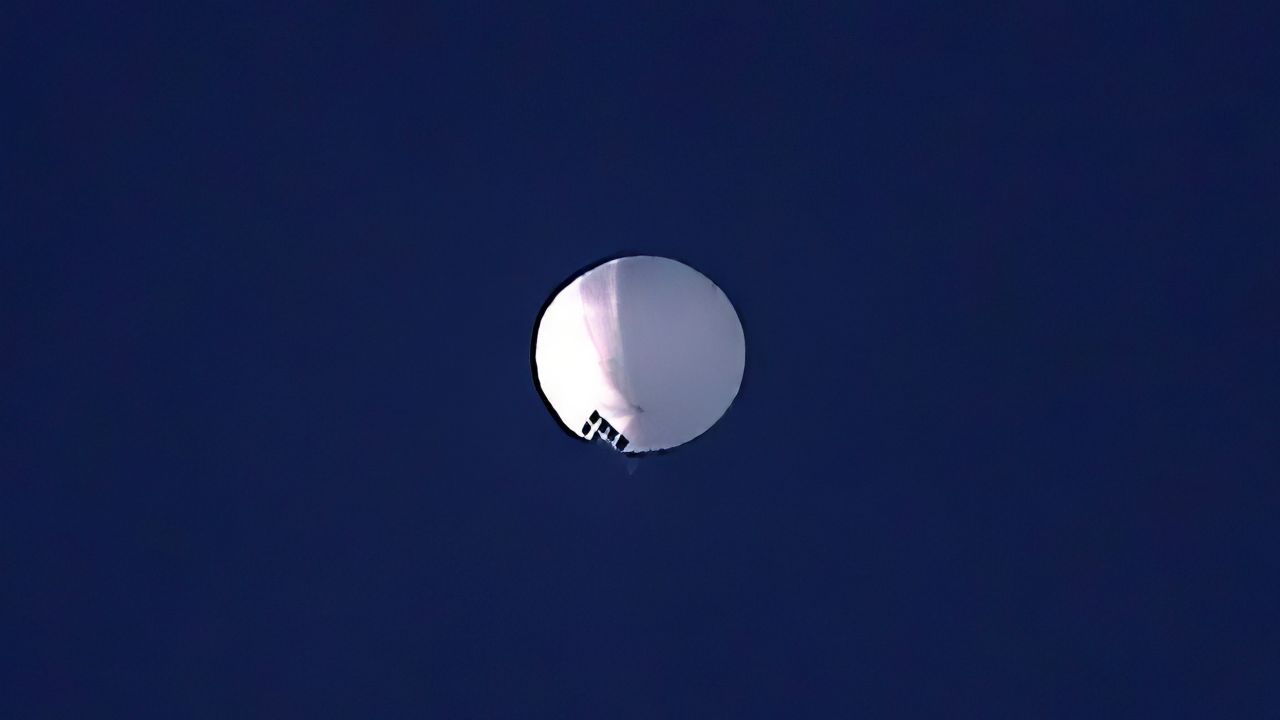
“Information strongly suggests the (Defense) Department failed to act with urgency in responding to this airspace incursion by a high-altitude surveillance balloon. No incursion should be ignored, and should be dealt with appropriately,” said Mississippi Sen. Roger Wicker, the top Republican on the Senate Armed Services Committee.
House Republican Speaker Kevin McCarthy – who has already warned China this week it can’t stop him visiting Taiwan if he wants – demanded a briefing about the balloon for the Gang of Eight congressional leaders.
“China’s brazen disregard for US sovereignty is a destabilizing action that must be addressed and President Biden cannot be silent,” the California Republican said.
It is fair to wonder why China sent a surveillance balloon over the US before Blinken’s critical visit, with both sides apparently keen to arrest the dangerous plummet in their relations. It seems far less likely this is a deliberate provocation since there’s reason to think China wants to turn down the heat too. Perhaps Beijing lost control of its balloon. Still, if a US balloon was being blown across the Chinese mainland right now, it’s likely President Xi Jinping’s government would wring maximum propaganda value out of the incident.
China’s Foreign Ministry said Friday it was aware of reports of the incident but warned against “deliberate speculation.”
“China is a responsible country. We act in accordance with international law. We have no intention in violating other countries’ airspace. We hope relevant parties would handle the matter in a cool-headed way,” Chinese foreign ministry spokesperson Mao Ning said.
Meanwhile, Canada said on Thursday evening it is also tracking the balloon’s movements and working with their American partners, including the monitoring of a potential second incident.
Going into the Blinken talks, there had seemed to be a small window to improve relations between the long, tense period that led up to Xi’s norm-busting securing of a third term in office, which may have contributed to a nationalistic Chinese attitude that worsened tensions with the US, and the next American presidential election. (White House races almost always degenerate into China bashing that angers Beijing.)
But the atmosphere around the talks had already been soured by a memo by US Air Force Gen. Michael Minihan first reported by NBC last week, which warned that his “gut” tells him to be ready for war with China – and not just in theory, but in two years. That prediction doesn’t track with US government assessments of the geopolitical tussle in the Pacific or necessarily with events in the region. But it showed how isolated events can send Sino-US tensions soaring.
Now, floating over that inflammatory atmosphere, we have a Chinese surveillance balloon. This incident may well turn out to be innocuous, but it’s another small drama that has not only ruined Blinken’s trip but will further fan the political flames that elevate hawks in Washington and Beijing who see what they want to see – an inevitable march toward conflict – and make that dangerous scenario more likely.
This story has been updated with additional details.



